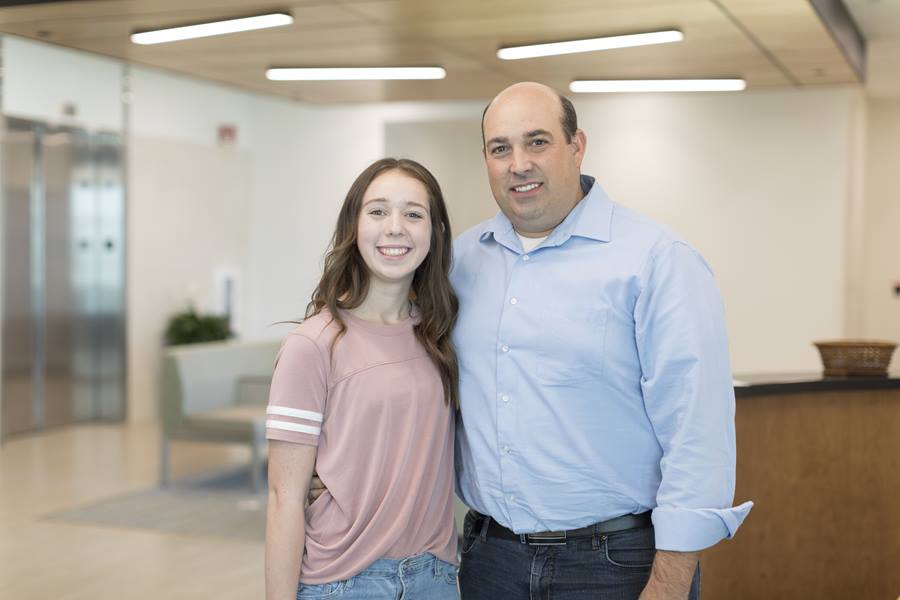StoryCorps and Intermountain Healthcare partner to share conversations of hope and healing.
Walt Brooks comes from a line of respected educators and historians in the southern Utah city of St. George. When he was young, Walt got into trouble a time or two, and finally his father took him down to the courthouse and told him to pick out another name because he wasn’t worthy of his grandfather’s. Walt shaped up, is currently serving as a Utah State Representative, and is passing along the importance of personal accountability to his daughter, Meli. “What you do in life does affect other people, especially people you care about.”
Transcript
Meli Brooks: What made you run for state representative two years ago?
Walt Brooks: I never wanted to be in politics, ever. There was an open seat, and I'd had all these people say, "You should run for this position." I'm like, "Why me? I'm really no one of consequence." People know me because of the church, or school activities, or volunteer things. They know Grandpa, because the football stadium's got his name on it. They know my dad and my brothers, because they're in the school system. Uncle Warren's the principal at the high school in Santa Clara, and Uncle Jason's the principal here in St. George. And there're teachers everywhere that are in our family.
I kind of thought about it, and I decided I didn't want to run for it, because ... What I told my good friend Abe ... He's kind of a mentor of mine ... I told him that I didn't want to be a politician, because politics is a sewer, and if you work in a sewer, you're going to come out smelling like the sewer. I didn't want that. He looked at me. He's, what, 25 years older than I am. He says, "That's why we need good plumbers."
It just hit me. If we want things to be better, then we have to do something about it. So, I ran. I didn't think I was going to win. The other candidate spent more money than I did by a lot, and he was endorsed by the mayor, and the city council, and all the people in politics. Our election-night party was just me eating some leftovers, because I had a meeting that night. I think your mom had three balloons that she blew up as we were watching the computer. And we won.
I really have to believe that people downtown knew Grandpa, they knew my dad, they knew my brothers, and they knew that we all acted the same. I think that's what it was. It goes back to: what you do and the way you act does affect a lot of people around you for good and for bad. I was lucky that I have good family members around me that are good, honest people. They act when they say, and they do the things they're going to do, and I think that's probably why.
I just felt like we all have an obligation to do our duty. We get the benefits of this great country. It's only going to stay that way if we stand up to do it.
Meli: If you could give me any advice to have a more successful future, what would you tell me?
Walt: Everything that we do usually affects other people. A lot of people have done things before us: my dad, my grandpa, the way they live their life, the integrity that they've had, and the kindness they've shown other people affects everyone and affects me. It's given me a lot of benefits because of the way my dad or my grandpa treated someone. You see it in school right now.
Meli: Mm-hmm (affirmative).
Walt: You have a brother that's two years older than you in high school. When he's nice to people and he does well in school, the teachers see you coming and they expect the same performance. So, I think it's a fallacy to believe that, "What I do is just my life." It's not really that. It does affect other people, especially people you care about and people you don't know you care about yet. I'm sure my grandpa didn't know about me coming a long, long time ago.
Meli: Thank you. Love you.
Walt: I love you, too, babe.


